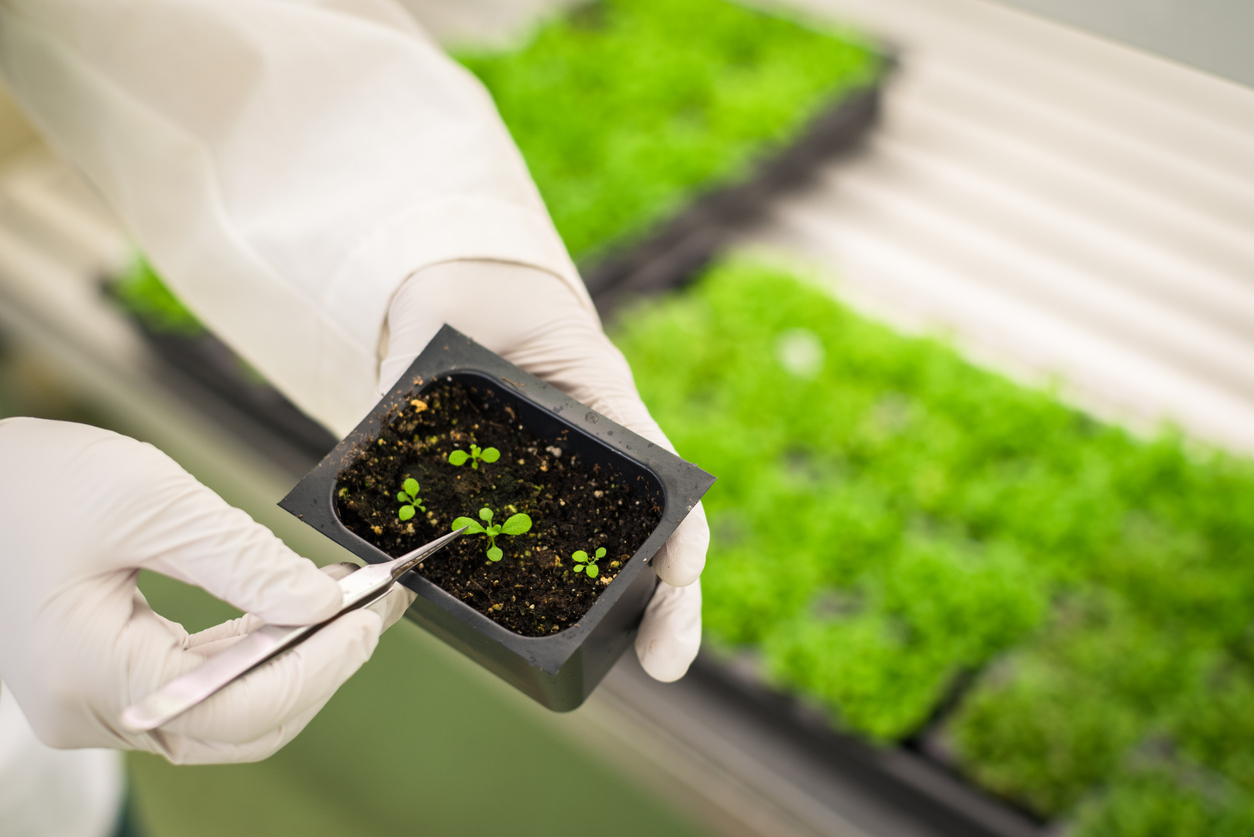
Overexpression of Atsob3-6 Gene Variant Improves Seed Size, Seed Weight and Seedling Emergence in Camelina
August 5, 2020| |
Washington State University scientists report that overexpression of a Atsob3-6 gene variant improves the seed size, seed weight, and seedling emergence of Camelina sativa. The results are published in Transgenic Research.
Seedling stand establishment is a critical factor that impacts the yield in low-precipitation areas especially for small-seeded crops such as Camelina (Camelina sativa) and canola (Brassica napus), which need to be planted shallow. AHL (AT-Hook Containing, NuclearLocalized) genes play vital functions in seedling growth and development. The initial study of the research team indicated that AtAHL29/SOB3 (Suppressorof phytochromeB-4 #3) regulates seedling development in Arabidopsis.
In a follow-up study, the researchers elucidated the role of Atsob3-D and Atsob3-6-OX in regulating seed size and hypocotyl length in the brassicas Arabidopsis and Camelina. Atsob3-D reduced the seed weight in Arabidopsis, while Atsob3-6-OX boosted seed weight and size when compared with the wild type. Likewise, Atsob3-6-OX transgenic Camelina seedlings are taller than the wild type, and produced larger and heavier seeds. These larger Atsob3-6-OX Camelina seeds also confer better emergence in deep-soil planting when compared to the wild type.
Based on the results, Atsob3-6-OX increases seed size, seed weight, seedling hypocotyl length and stand establishment in Camelina.
Read the research article in Transgenic Research.| |
You might also like:
- GM Camelina Could Replace Fish Oil as Primary Source of Fatty Acids
- CRISPR-Knock out of FAE1 Gene Improves Camelina Seed Oil Quality
- CRISPR-Cas9 Triple Gene Edited Camelina Plant Receives Nonregulated Status
Biotech Updates is a weekly newsletter of ISAAA, a not-for-profit organization. It is distributed for free to over 22,000 subscribers worldwide to inform them about the key developments in biosciences, especially in biotechnology. Your support will help us in our mission to feed the world with knowledge. You can help by donating as little as $10.
-
See more articles:
-
News from Around the World
- Svalbard Global Seed Vault Starts a Century-long Seed Experiment
- Nigerians Ready to Know More About GM Crops
- Study Shows Plants Regulate Growth-Inhibiting Hormones to Survive
- EFSA Releases Scientific Opinion on GM Oilseed Rape Ms8 x Rf3 x GT 73
-
Research Highlights
- Gene Inserted in Tobacco Plant Sheds Light to Increased Heat Stress Resistance
- Overexpression of Atsob3-6 Gene Variant Improves Seed Size, Seed Weight and Seedling Emergence in Camelina
-
Plant
- OsABCI7 and OsHCF222 Interaction Stabilizes Rice Thylakoid Membrane
- Gene Editing Breakthrough Seen to Improve Breeding of Barley Crops
- Researchers Map Largest, Most Complex CRISPR System
- Webinar: The Challenges of Communicating about Gene Technologies
-
Health
- More Countries Join the COVID-19 Food Coalition
- Study Finds SARS-CoV-2 Has Six Strains
-
Read the latest: - Biotech Updates (February 18, 2026)
- Gene Editing Supplement (January 28, 2026)
- Gene Drive Supplement (February 22, 2023)
-
Subscribe to BU: - Share
- Tweet

